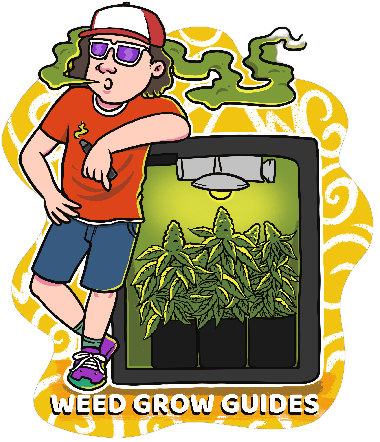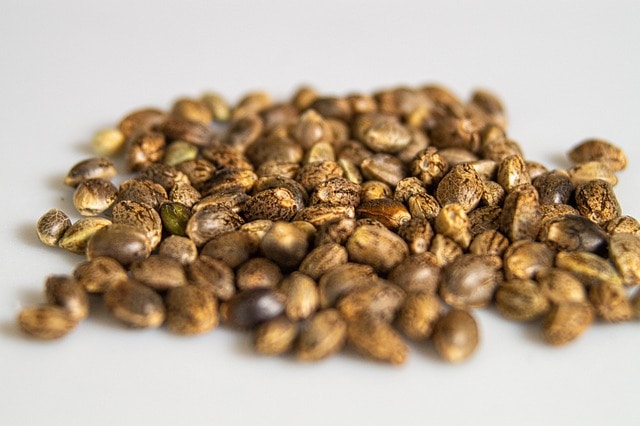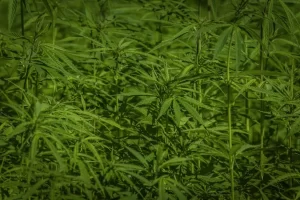Growing CBD organically not only supports your health but also benefits the environment. This article explores the many advantages of cultivating CBD using organic practices, demonstrating why it’s the better choice for growers and consumers alike.
1. Improved Plant Health and Quality
One of the most significant benefits of growing CBD organically is the improvement in plant health and quality. Organic farming practices prioritize natural soil health, which directly contributes to robust plant growth. Unlike conventional methods that may rely heavily on chemical fertilizers, organic cultivation enriches the soil through compost and crop rotation, creating a nurturing environment for CBD plants to thrive.
When plants are healthy, they are more resilient to pests and diseases, leading to a reduced need for pesticides or harsh treatments. This not only protects the plants but also ensures that the end product remains pure and free from harmful residues. Take, for instance, a well-cared-for CBD plant; it can yield higher amounts of cannabinoids, leading to a more potent and quality final product.
2. Enhanced Flavor Profiles
Growing CBD organically often results in enhanced flavor profiles, which is a deciding factor for many users. Plants cultivated in rich, organic soils develop complex terpene profiles, giving the CBD its unique aromas and flavors. This diversity not only makes the experience enjoyable but can also lead to unique therapeutic properties.
When you utilize organic methods, you foster an ecosystem where beneficial organisms live and thrive. These organisms contribute to the overall flavor and character of the plants. So, next time you sample a full-bodied CBD oil, remember, flavors developed in an organic setting can deliver a more satisfying experience than those produced through synthetic processes.
3. Higher Potency and Efficacy
Another compelling advantage of growing CBD organically is the potential for higher potency and efficacy. Studies suggest that organic-grown CBD can express a richer cannabinoid and terpene profile, increasing its overall therapeutic benefits. When you eliminate harmful chemicals and chemicals, you allow the plant to express its true potential.
Moreover, organic growing techniques typically focus on fostering harmony within the soil ecosystem. This balance contributes to the plant’s ability to flourish naturally, enhancing its potency. As experience shows, many users report that organically grown CBD has a more profound effect on their wellbeing, making it a preferred choice among knowledgeable consumers.
4. Reduced Environmental Impact
Growing CBD organically significantly reduces environmental impact, setting a responsible precedent in agriculture. Organic methods avoid harmful pesticides and synthetic fertilizers, all of which can run off into water supplies, negatively affecting local ecosystems. By growing cannabis organically, cultivators help preserve biodiversity and protect local wildlife.
Additionally, organic farming practices sequester carbon, contributing positively to climate change mitigation. Sustainable methods such as reduced tilling and crop rotation enhance soil health, enriching the planet’s natural resources. Embracing organic practices not only prioritizes your health, but it also demonstrates immense respect for the environment.
5. Support for Biodiversity
Growing CBD organically supports biodiversity, an essential element of a healthy ecosystem. Organic farms often employ companion planting and crop rotation, which bolster the variety of life in and around the farming area. This diversity attracts beneficial insects, maintains soil health, and minimizes pest problems.
When you cultivate various species alongside CBD plants, the ecological balance improves. This not only creates resilience in the food chain but also promotes a thriving environment for numerous species, contributing to a more sustainable agricultural practice.
6. Safer for Growers and Consumers
Growing CBD organically is undeniably safer for both growers and consumers. The use of synthetic chemicals not only poses risks for those who apply them but may also linger in the final product. By avoiding these substances, organic cultivators safeguard their health while also ensuring that consumers receive a clean and wholesome product.
Moreover, organic CBD often undergoes rigorous testing to secure certification. This process builds a layer of trust among consumers, ensuring they are investing in products that meet stringent safety standards. The peace of mind that comes from knowing what you’re consuming should not be underestimated.
7. Sustainable Farming Practices
Organic CBD growing champions sustainable farming practices, which are vital in today’s agricultural landscape. These methods emphasize soil health, crop diversity, and animal welfare, moving away from conventional practices that can deplete resources and lead to long-term environmental degradation.
Cultivators who embrace sustainable practices contribute directly to the future of agriculture. By minimizing the use of non-renewable inputs, they help secure a farming model that future generations can build upon, focusing on practices that protect our planet while meeting human needs.
8. Potential for Regenerative Agriculture
As we delve into the potential of regenerative agriculture, growing CBD organically plays a pivotal role. Regenerative practices strive to restore and enhance the health of the ecosystem, focusing on regenerating soil health, water cycles, and biodiversity.
By implementing these strategies in growing CBD, farmers can contribute to rebuilding ecological systems rather than simply depleting them. The holistic approach employed in regenerative farming offers the potential to cultivate more resilient and productive crops while also improving the surrounding environment.
9. Support for Local Economies
Growing CBD organically can significantly benefit local economies. When farmers practice organic cultivation, they often sell directly to consumers through farmer’s markets and local stores. This model keeps the dollars in the community and creates direct relationships between growers and consumers.
Moreover, as interest in organic CBD rises, so does the demand for local organic products. This shift fosters job creation, stimulating local economies and enhancing community resilience. Investing in local agriculture strengthens connections within the community, creating a more vibrant and sustainable economy.
10. Education and Awareness Benefits
Growing CBD organically can also lead to increased education and awareness regarding agricultural practices. When growers commit to organic methods, they often share their knowledge and experiences with others in their community. This sharing fosters a culture of learning and understanding, highlighting the importance of sustainability and health.
As consumers become more informed, they tend to demand better quality and source products ethically. This awareness cycle not only boosts the sales for organic cultivators but also encourages more farmers to shift toward responsible practices, further enriching community knowledge and values.
11. Access to Organic Certifications
Access to organic certifications is a major advantage for growers of CBD. By obtaining organic certification, farmers can showcase their commitment to quality and sustainable practices. Certified products often command a premium price in the marketplace, leading to more robust profit margins.
Furthermore, being certified opens doors to a broader audience. Consumers are increasingly seeking out organic products, and certification can signal that a grower meets high-quality standards. This builds brand loyalty and trust while attracting a customer base that prioritizes health and sustainability.
12. Strengthening Consumer Trust
In the realm of CBD, strengthening consumer trust is crucial. When products are grown organically, consumers can feel confident that they are choosing a safer, more sustainable option. Transparency and a commitment to organic practices foster loyalty and repeat customers, which is invaluable in today’s market.
As more consumers seek out information about where their products come from, organic certification serves as a reassuring indicator. This transparency in growing practices builds confidence and enhances the overall perception of the brand, leading to long-term relationships between growers and consumers.
13. Resilience Against Pests and Diseases
Organically grown CBD plants exhibit greater resilience against pests and diseases, thanks to their naturally robust cultivation methods. By avoiding chemical pesticides, plants can develop stronger immune systems, making them less susceptible to infestations and ailments.
Additionally, cultivating biodiversity within the farming ecosystem encourages beneficial insects that act as natural pest control. This harmony minimizes the need for synthetic interventions, leading to healthier plants and better harvests. Growers can rely on nature’s balance, allowing them to focus more on nurturing their crops.
14. Greater Compatibility with Nature
Growing CBD organically fosters greater compatibility with nature. By working with natural cycles rather than against them, organic farmers enhance the health of their ecosystems. This cooperation with nature encourages healthier plants and richer soils, creating a thriving agricultural environment.
When farmers adapt to local conditions and prioritize sustainable methods, the entire ecosystem benefits. Healthy soil leads to healthier plants, producing a higher quality and more plentiful harvest, all while embracing harmonious coexistence with the environment.
15. Positive Contribution to Soil Health
Last but not least, growing CBD organically makes a positive contribution to soil health. Organic practices enhance soil structure, increase organic matter, and improve nutrient availability. This leads to more resilient crops and better environmental conditions.
Furthermore, healthy soil is vital for the ecosystem. It supports microbial life, encourages water retention, and helps prevent erosion. By building soil health through organic farming, growers play an essential role in promoting a stable agricultural future, highlighting the importance of nurturing the land we depend on.













